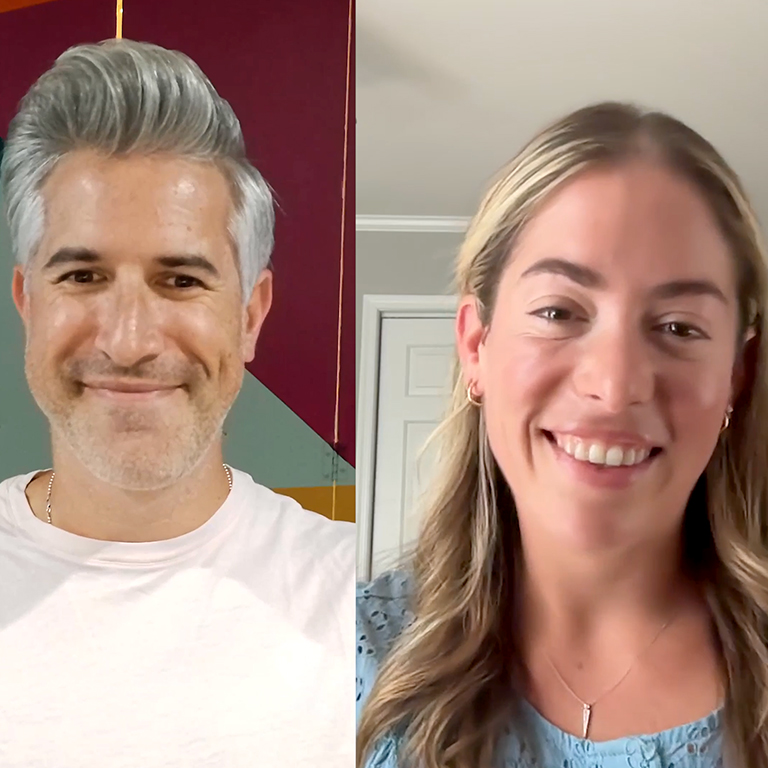One of the biggest misconceptions when it comes to investing and financial planning is that you have to have hundreds of thousands or even millions of dollars to do it.
That’s simply not true.
One thing that is true, though? Your behavior and what you do with your money has more of an impact than how much you have.
On our podcast, Common Cents on the Prairie™, we’ve been working to help our listeners do more with their money. With that, money and behavior has been a common theme. That’s why we thought we’d bring in an award-winning author to talk about the topic.
 Our latest episode features Morgan Housel, who previously was a columnist at The Wall Street Journal and The Motley Fool: two havens for investment nerds. He’s also authored the new book The Psychology of Money.
Our latest episode features Morgan Housel, who previously was a columnist at The Wall Street Journal and The Motley Fool: two havens for investment nerds. He’s also authored the new book The Psychology of Money.
So, he likes finance and likes writing about finance. Why should you care?
In his journey of writing about money, he’s gotten a window into the practices of some of the world’s most successful investors. He’s learned that investing is not all about the analytical tools like formulas and access to historical trends. Instead, he says there’s one thing that sets successful investors apart: their behavior.
Below, you’ll find a few things you can do to change the way you behave with your money. Otherwise, listen to our conversation with Morgan — you won’t want to miss any of what he has to say!
Stop comparing yourself to others
In the age of social media, we’ve been made painfully aware of what others have and what we don’t have.
Lots of people think back to the 1950s as a golden age for prosperity and the highest quality of life. But did you know that the median household income for U.S. households has actually doubled since then? And that’s after the inflation adjustment!
So, why does it feel like we can’t experience prosperity and success like people in the ‘50s did?
Well, that comes down to the fact that our material desires have outpaced median household income. You can see it in lots of different aspects of life today. For example, in 1950, the average house was 900 sq. ft. Today, that’s grown to 2,400 sq. ft.
We, as a society, want more and we want better things. While there’s nothing wrong with that, successful investors know that spending money should come after you’ve met savings and investing goals.
“Saving money is the gap between your ego and your income”
Let’s be real: much of what we spend money on is to make a social statement. That’s why we always want to buy a bigger house, a better car, or nicer clothes. We want to signal to others that we’ve made it.
In his book, Morgan says, “Saving money is the gap between your ego and your income.” And that’s exactly right! The only way you can increase your savings is to withstand your desire to spend more money to make a social statement.
Morgan uses this example: someone who has a $1 million salary but spends $1.1 million is worse off than someone who makes $50,000 and lives on $40,000.
It’s all comes down to being disciplined and not spending more than you have. That’s something we can all take a look at, regardless of financial situation.
Save like a pessimist and invest like an optimist
Another tip Morgan shares about saving and investing is to “save like a pessimist and invest like an optimist.” While it seems contradictory to do both of those things at the same time, there’s actually a really good reason.
The market has done some crazy things over the course of history. More recently, we think of September 11, the financial crisis of 2008, or COVID-19. These negative shocks will continue to happen, we just don’t know when.
This is why Morgan recommends saving like a pessimist to protect yourself from market downturns, but yet to invest like an optimist in order to capitalize on times when the markets perform well, as they tend to do over time.
Results take time
Along with saving like a pessimist and investing like an optimist, one of the most tried and true staples of successful investing is longevity.
Morgan shares two reasons why longevity is important in investing: one, we know from market research that success is found in the long term. The longer your time horizon, the greater the probability of your success.
Secondly, longevity is the main ingredient for compounding. Your investments generate earnings, and then those earnings are reinvested to generate more earnings. That definitely takes some time!
Famed investor Warren Buffett started investing when he was 10 years old. Despite his early start, 97 percent of his $84.6 billion net worth came after his 65th birthday! Doesn’t that make you wish you had started investing when you were 10, too?
2020 was a wild ride. What can we learn going forward?
What we experienced in 2020 was volatility. We went from the longest bull market in history to a point where some people’s portfolio values went down by more than 30%. While others would view that kind of volatility as a fine or punishment, Morgan looks at is as a fee, or the price of admission.
Ultimately, the market will do well over time. But the compounding on your investments that you’ll enjoy doesn’t come for free. You’ll have to pay the price of admission: volatility.
What else can I do?
We’ve always wanted to make managing money something that’s understandable to everyone. That’s why we’ve brought on guests like Morgan who share that view and have great insights in order to help it make a little more sense.
Listen to the full episode by clicking the player below or searching “Common Cents on the Prairie” wherever you stream your podcasts!
Any comments, insights or strategies discussed in this article are intended to be general in nature and, therefore, may not be suitable for you and your situation, whatever that may be. Before acting on anything written here, please consult with your attorney, CPA and/or your financial adviser.





